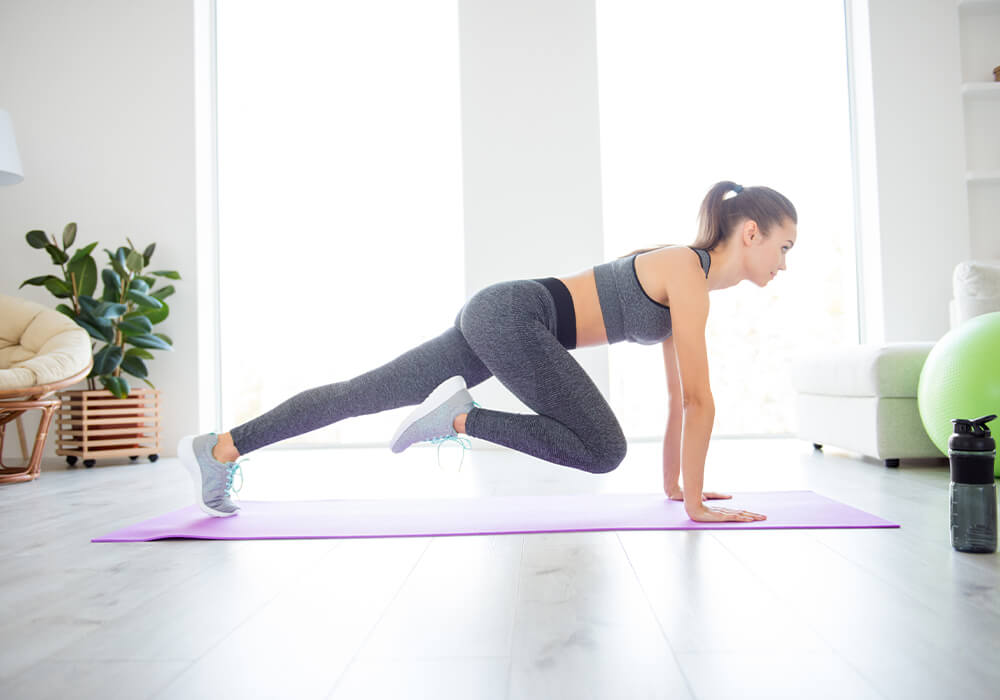Winter Wellness: Tips for Keeping Active Despite the Cold
As the winter season approaches, the drop in temperature and shorter days can often lead to decreased physical activity. It’s easy to give in to the urge to stay cozy indoors, but maintaining an active lifestyle during these colder months is crucial for both physical and mental health.
Regular physical exercise serves as a vital immune booster during the cold and flu season. It plays a significant role in managing mood and energy changes that often accompany the winter months. In this comprehensive guide, we will explore a variety of practical tips and methods to help you stay active and healthy this season.

Embracing Outdoor Winter Activities
Winter offers unique opportunities for engaging in sports and activities you can’t experience during other seasons. Participating in winter sports such as skiing, snowboarding, ice skating, or snowshoeing can be a great way to break the monotony of routine exercises. They are also beneficial in working various muscle groups and providing cardiovascular benefits, crucial for maintaining a healthy heart and lungs during the winter months.
To make the most out of these activities, it’s essential to take a few precautions:
- Dress Appropriately: Start with moisture-wicking base layers to keep sweat away from your skin, followed by an insulating middle layer to retain body heat, and finish with a waterproof and windproof outer layer to protect against the elements. Also, protecting your extremities with warm gloves and a hat is crucial.
- Check Weather Conditions: Before planning any outdoor activity, always check the local weather forecast. Sudden weather changes can be common in winter, and avoiding extreme conditions could lead to dangerous situations.
- Be Aware of Daylight Hours: With shorter days in winter, plan your activities during daylight to ensure better visibility and safety. If you find yourself out after dark, wear reflective clothing and carry a flashlight or headlamp.
- Warm Up Properly: Cold weather can make your muscles more prone to injury. A dynamic warm-up, like jogging in place or jumping jacks, and stretching is essential to get your blood flowing and muscles ready for activity.
- Use the Right Gear: Whether it’s having the right type of skis for skiing or traction aids for your shoes when walking on icy surfaces, the correct gear can significantly improve your safety and enjoyment of the activity.
- Stay Hydrated: It’s easy to overlook hydration in cold weather, but your body still loses water through sweat and breathing. Be sure to drink fluids before, during, and after your activities to stay well-hydrated.
- Know Your Limits: Listen to your body and take regular breaks, being aware of any signs of fatigue or discomfort.
- Be Prepared for Emergencies: Carrying a small backpack with essentials such as water, a snack, a first-aid kit, and a fully charged phone is always a good idea, especially when venturing into less populated areas.
Exploring Indoor Exercise Alternatives
While outdoor activities have their charm, not everyone is a fan of braving the cold. Fortunately, winter also presents the perfect opportunity to explore indoor exercise options, offering comfort and variety.
Setting up a small workout area can be incredibly effective for those who prefer exercising at home. You can engage in various bodyweight exercises like push-ups, squats, lunges, and planks. These exercises are simple, require no special equipment, and can be remarkably effective in maintaining fitness. Digital platforms can also be a great resource for finding at-home workout routines, providing various routines that cater to different fitness levels and preferences, from high-intensity interval training (HIIT) to yoga and Pilates. Some platforms even offer live-streamed and pre-recorded classes, so you can now enjoy the energy and community of a fitness class right in your living room. These programs provide the flexibility to work out on your own schedule, making it easier to fit exercise into a busy lifestyle.
For those seeking more structure or social interaction, gyms and fitness classes are excellent options. Consider trying a new class this winter, such as spinning, Zumba, or strength training. These classes provide a structured workout environment and the opportunity to meet others with similar fitness goals. Working with fitness professionals in these settings can also help you tailor your fitness journey to your specific needs, providing guidance and support that is personalized for you.
Maintaining Adequate Nutrition
Proper nutrition and hydration are essential for sustaining health and wellness, especially during the winter. As temperatures drop, we often gravitate toward warm, comforting foods. While indulging in these comfort foods occasionally is fine, it’s essential to focus on including nourishing options that provide the required energy and nutrients. Let’s break down some key components of winter nutrition:
- Winter Vegetables: Winter is the season for root vegetables and squashes, which are flavorful and packed with nutrients. Vegetables like sweet potatoes, carrots, parsnips, and beets are high in vitamins A and C, as well as fiber. Winter squashes, such as butternut, acorn, and spaghetti squash, are versatile and provide beta-carotene, potassium, and antioxidants. Try roasting these vegetables to bring out their natural sweetness, or add them to a hearty soup.
- Warm Protein Options: Incorporating warm proteins into your meals is essential for maintaining muscle health and overall energy levels. Lean meats like chicken, turkey, and beef are excellent sources of high-quality protein and can be used in stews, casseroles, and roasts. Fish, particularly fatty types like salmon and mackerel, are rich in omega-3 fatty acids, which are important for heart health. Plant-based proteins like lentils, beans, and tofu are also great options for soups, curries, and stir-fries.
- Whole Grains and Legumes: Whole grains such as brown rice, quinoa, barley, and whole wheat bread are excellent sources of complex carbohydrates, providing sustained energy. They are also rich in fiber, which is important for digestive health. Legumes like beans, lentils, and chickpeas are good sources of protein and contain essential nutrients like iron, potassium, and B vitamins.
Staying Active with Pro Staff Physical Therapy
At Pro Staff Physical Therapy, we are committed to helping you stay active, healthy, and enjoying the winter. We offer a range of services to support your wellness journey:
- Personalized Physical Therapy Programs: Our therapists tailor physical therapy to your needs and goals. Whether you are recovering from a winter sports injury or looking to enhance your physical fitness during the colder months, our expert therapists provide the necessary guidance and support every step of the way.
- Winter Sports Injury Prevention and Rehabilitation: We specialize in preventing and rehabilitating injuries common in winter sports like skiing and ice skating. Our goal is to ensure that athletes and enthusiasts not only recover effectively but learn strategies to prevent future injuries, allowing for continued enjoyment of winter activities.
- Indoor Exercise Recommendations: We understand that outdoor activities can be limited during winter, so our therapists are prepared to recommend various indoor exercises designed to keep you moving, fit, and healthy, regardless of the weather.
- Balance and Fall Prevention Programs: With the increased risk of slips and falls due to icy conditions, balance and fall prevention training is more crucial than ever. These programs are focused on helping you navigate winter safely, minimizing the risk of injury.
- Nutrition Counseling: Our therapists provide comprehensive nutrition guidance to ensure your diet supports your physical therapy goals and overall well-being.
- Joint and Muscle Care: Cold weather can lead to joint stiffness and muscle tightness. We offer specific exercises and therapies to alleviate these issues, helping you maintain flexibility and comfort.
- Therapeutic Modalities: Our therapists utilize various therapeutic modalities, including heat therapy, electrical stimulation, and ultrasound, to aid in pain relief and enhance recovery, which is especially beneficial during the cold months.
With 9 convenient locations, Pro Staff Physical Therapy is here to ensure that winter is a season of continued activity and progression toward your health and fitness goals. Schedule an appointment today to get started!
Pro Staff Institute, LLC, has a network of outpatient physical rehabilitation centers in New Jersey. Pro Staff was founded in 2010 by Frank Pavlisko and Michael Maffucci. Through Frank’s 25 plus years experience in Physical Therapy and Michael’s experience in Management Services, our goal is to exceed customer expectations by providing the highest quality of service in a fun, family, friendly, and encouraging environment.
PRO STAFF LOCATIONS
OFFERING CERTIFIED
HAND THERAPY
Managing Diabetes: The Role of Physical Therapy
Managing Diabetes: The Role of Physical Therapy As of 2024, approximately 38.4 million Americans, or 11.6% of the U.S. population, have diabetes. Of these, 29.7 million cases are diagnosed, while an estimated 8.7 [...]
Staying Active and Injury-Free During Summer Activities
Staying Active and Injury-Free During Summer Activities Summer is a fantastic time to engage in outdoor sports and physical activities. Whether playing soccer, tennis, cycling, or jogging in the park, staying active is [...]
The Importance of Posture: How Proper Alignment Can Prevent Pain and Injury
The Importance of Posture: How Proper Alignment Can Prevent Pain and Injury In today's fast-paced world, where many hours are spent over desks, smartphones, and computers, posture is often neglected. Poor posture can [...]




